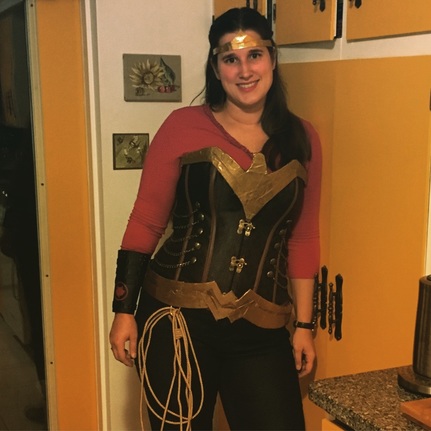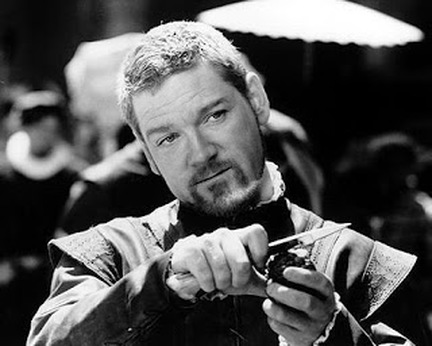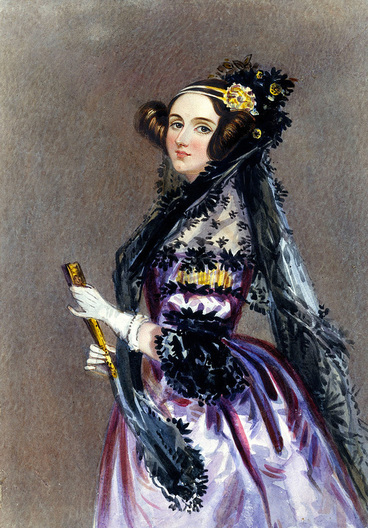|
I am getting weary of the term "strong female character." Not of the concept, obviously - just of the term. I grant that if you're looking at a story written 100 years, 50 years, or even 25 years ago, this might be striking. Now, though, when I open a recently written novel, I expect there to be a strong, good female character in there somewhere, and I'm slightly annoyed if there isn't. Generally, a novel that doesn't have any strong female characters isn't disappointing merely because its female characters are weak - it's often disappointing because all its characters are weak. Strong female characters seem to be on everyone's mind this week, in response to the UN naming Wonder Woman as their Ambassador for the Empowerment of Women and Girls. The reaction was, maybe predictably, mixed. Let's set aside for a moment whether or not this role should have been fulfilled by a real woman, and assume that the UN wanted a fictional figure (as they have done before with Winnie the Pooh and Tinkerbell). What then was the objection to Wonder Woman? One that seemed to be at the forefront was that Wonder Woman was an "overtly sexualized image." Wonder Woman is a comic book character. Realism is not generally what they do. But this is a case where treating female characters differently from male characters runs us into problems; obsessing over the strength and sexualization of fictional female characters over male ones strikes me as an obvious double standard. Male comic book characters are no more realistic than female ones, but no one seems terribly squeamish about the sexualization of Batman or Superman. And if you think it doesn't exist, then I invite you to have a look at the cover of the New 52's Action Comic #1. Quibbling over Wonder Woman's costume seems petty. The more interesting conversation to me has less to do with Wonder Woman, and more to do with our sloppy language - when we say "strong female character," what kind of strength are we talking about? We rarely define this, and in Wonder Woman's case, it matters. Are we talking about physical strength - the kicking and punching of every action hero - or are we talking about the Wonder Woman who refuses to consider herself inferior, who encourages others, who is hopeful and decent and good in the face of so much hatred? We need to consider which one we mean. Because while the idea of a woman who can physically match Batman and Superman is heartwarming, a woman with the mental strength to endure and survive and carry on with hope is a much more helpful one to most women and girls. Being strong doesn't always mean simply fighting evil. Sometimes, it means being smarter than it. Last week, I told you to go watch Sleeping Beauty. Did you? If not, that is very much your loss. Anyway, consider the true protagonist of that movie. Nope, not Prince Phillip, the dreamiest Prince in Disney-dom. I mean the Three Good Fairies, Flora, Fauna, and Merryweather. They seem like push-overs - they're not. They hide the Princess from an evil villainess, they sneak into a fortress guarded by goblins and orcs, and they guide the hero, complete with sword and shield, to his victory over a fire-breathing dragon. They never touch their enemy - they're smarter than that.
0 Comments
So let's back up a bit. We all acknowledge that a story needs an antagonist - of course it does. It needs a force that opposes the protagonist, that causes conflict and misery for the main character. Stories without antagonists are not stories. Period.
But there is a difference between villainy and antagonism. At some point (hopefully), some English teacher told you that there are three kinds of conflict - person-versus-person, person-versus-environment, and person-versus-self. This is broadly true, but stories with any depth have to incorporate the last one. I took a course in university called "Traditions of Canadian Literature." Before I even took it, I made the joke that a "tradition of Canadian Literature" was snow. The thing is, though, snow is actually an excellent antagonistic force, not because of its villainy, but because of what it does to the character's mind. In the words of Jack Sparrow, "The problem is not the problem. The problem is your attitude about the problem." We are our own worst enemies, by a long way. Who is Othello's worst enemy, in Shakespeare's play? His own jealousy. Don't get me wrong, Iago is terrifying, but he's only successful because of Othello's existing state of mind. What about Batman's worst enemy? The Joker? Hardly. He's a great villain, but he doesn't hold a candle (or, in the Joker's case, a stick of dynamite) to the demons in Batman's own mind, and this is true regardless of who is writing him. Is Loki the Avengers' greatest foe? If he is, it's only because he goes to work on the one thing that can tear them apart more quickly than he can - themselves. I don't know very many villains (with some notable exceptions in the form of certain world leaders). But I am familiar, as we all are, with a fair few antagonistic forces. Jealousy, prejudice, sexism, racism, pride, trauma... These are the forces that interested me in writing The Steel Lady, because they feel real. And okay, I acknowledge that it sounds better to say "my novel has a great villain" than it does to say that "my novel has great antagonistic forces." But be honest - which one do you deal with everyday? The prejudices and barriers of your mind, or an evil overlord villain with a diabolical plan? That we are so often the authors of our own destruction is terrifying in and of itself. Okay, that's a depressing way to end. Instead, let's follow the example of C. S. Lewis, when he said "Since it is so likely children will meet cruel enemies, let them at least have heard of brave knights and heroic courage." Indeed. If you haven't done so recently, make a giant bowl of popcorn and go watch Disney's 1959 classic, Sleeping Beauty. It features a fabulous villain - a proper villain, not an antagonistic force - but it also, and more importantly, features the heroics of both Prince Phillip, a prince who couldn't be more Disney if he tried, and the Three Good Fairies, female characters who are bizarrely strong for 1959. Just enjoy it. Heroes and strong female characters are a topic for another day.
What we do know, from letters and publications, is that she had a working friendship with Charles Babbage, the inventor of the never-built Analytical Engine. The Analytical Engine, had it been built, would have been the world's first computer, but rather than transistors or vacuum tubes, its central workings were cogs and punch cards. It was, or would have been, fully mechanical, and driven by steam power.
Ada Lovelace (or Ada Byron as she is sometimes known) was fascinated by the Analytical Engine, and recognized in it an enormous potential, for everything from creating mathematical tables to playing music. She translated an explanation of the Engine, and added her own rather copious "Notes" in order to explain how it might function, and algorithms that might be used in it. It is this, more than anything, that earned her her title as "the first computer programmer." But let's be honest. Ada Lovelace is no more a computer programmer than Charles Babbage is a computer engineer. They were, both of them, gifted mathematicians and talented dreamers, foreseeing in steel and brass a world that we have created in silicon, but never having a chance to create it. That is, in fact, why I wrote The Steel Lady - to bring to life a machine that only ever existed on paper and in prototypes, and to watch its existence play out in the lives of the people around it. So why should we care about Ada Lovelace? Because as a woman in the 1830s, she was a mathematician, and profoundly understood how a computer would work, without ever seeing it. Programmer or not, that would seem to deserve our admiration. |
Author
Jane Perrella. Teacher, writer. Expert knitter. Enthusiast of medieval swordplay, tea, Shakespeare, and Batman. Archives
June 2019
Categories |



 RSS Feed
RSS Feed
